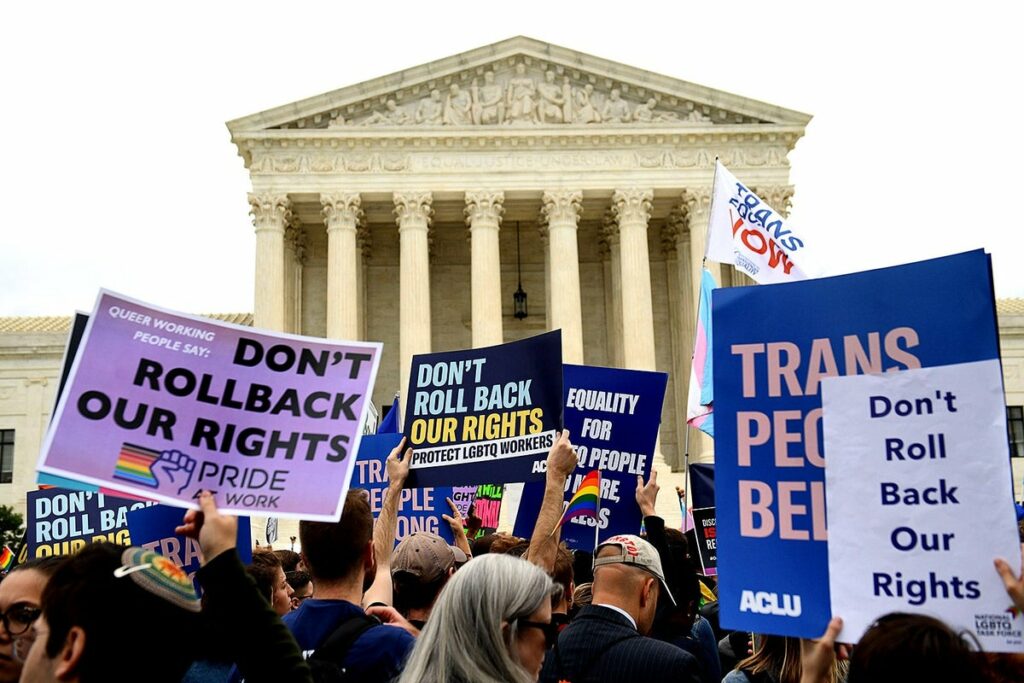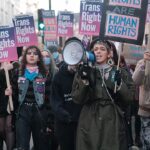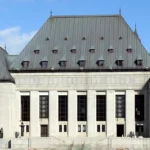Blog Post
Another important victory for religious freedom at the U.S. Supreme Court
If one thing has become crystal clear over the past several years, it is that the LGBT movement does not believe in religious freedoms and wishes to force religious people to cooperate with their agenda. They do not want cultural acceptance, they want cultural dominance. Since the legalization of same-sex marriage, they have been increasingly saying so out loud.
Those who disagree with them are labeled an active threat to LGBT lives—usually LGBT children’s lives. On June 5, the New York Times published an op-ed titled “A Supreme Court Case Poses A Threat to LGBTQ Foster Kids.” Last week, much to the fury of LGBT activists, religious liberty prevailed once again at the U.S. Supreme Court in Fulton v. The City of Philadelphia—and it wasn’t even close. The Court delivered a unanimous, 9-0 judgement in favor of Catholic Social Services. The details:
Philadelphia had stopped referring children to CSS for foster care because CSS would not vet same-sex couples as foster parents, as the Catholic agency believes that marriage is a bond between one man and one woman. The question before the court was whether the actions of Philadelphia violated the First Amendment Rights of CSS.
Chief Justice Roberts, who delivered the opinion of the Court, wrote: The refusal of Philadelphia to contract with CSS for the provision of foster care services unless it agrees to certify same-sex couples as foster parents cannot survive strict scrutiny, and violates the First Amendment.
Justice Alito noted that the city government had threatened the welfare of children awaiting placement in foster homes at a time when there was already an “acute shortage of foster parents,” and “went so far as to prohibit the placement of any children in homes that CSS had previously vetted and approved.”Top of Form\Bottom of Form
“The City apparently prefers to risk leaving children without foster parents than to allow CSS to follow its religiously dictated policy, which threatens no tangible harm,” continued Justice Alito.
Today’s ruling is being hailed by many as an important victory.
“With more than 400,000 kids in foster care, we should be doing everything we can to support organizations that connect children in need with loving families. Discriminating against faith-based foster care providers because of their beliefs is not only unconstitutional, it makes it harder to get more kids into the safe, stable homes they deserve,” declared Sen. Roy Blunt of Missouri. “The Supreme Court’s decision is a victory for religious liberty and for every child in the foster care system.”
“The decision today by the Supreme Court is a substantial win for religious liberty. In a time of growing hostility towards religion the Supreme Court’s reaffirmation of this fundamental freedom is even more critical,” said Family Research council President, Tony Perkins in a statement.
“Increasingly, the Left refuses to tolerate the slightest deviation from their political orthodoxy regardless of who suffers as a result. While we stop to celebrate and thank God that the Supreme Court reaffirmed religious liberty today, we are fully aware and prepared for the attacks of the Left on this fundamental, God-given freedom to continue unabated,” concluded Perkins.
“The Supreme Court’s decision today is a great win for all children who are in need of a forever home. The staggering number of children in foster care demands an all hands on deck approach that allows for all people, no matter their religious beliefs, to open their homes and their hearts to a son or daughter who needs a family,” commented Leigh Fitzpatrick Snead, an adoptive mother and Fellow for The Catholic Association. “The state should not require foster care agencies to compromise, violate, or abandon their religious beliefs or identities as a condition of serving these children in need.”
While clearly a victory for religious liberty in general, and Catholic social service organizations in particular, Justice Samuel Alito, who was joined in his concurring opinion by Justice Clarence Thomas and Justice Neil Gorsuch, warned that today’s ruling did not go far enough:
This decision might as well be written on the dissolving paper sold in magic shops. The City has been adamant about pressuring CSS to give in, and if the City wants to get around today’s decision, it can simply eliminate the never-used exemption power. If it does that, then, voilà, today’s decision will vanish — and the parties will be back where they started …
Not only is the Court’s decision unlikely to resolve the present dispute, it provides no guidance regarding similar controversies in other jurisdictions. From 2006 to 2011, Catholic Charities in Boston, San Francisco, Washington, D. C., and Illinois ceased providing adoption or foster care services after the city or state government insisted that they serve same-sex couples. Although the precise legal grounds for these actions are not always clear, it appears that they were based on laws or regulations generally prohibiting discrimination on the basis of sexual orientation. And some jurisdictions have adopted anti-discrimination rules that expressly target adoption services.
Today’s decision will be of no help in other cases involving the exclusion of faith-based foster care and adoption agencies unless by some chance the relevant laws contain the same glitch as the Philadelphia contractual provision on which the majority’s decision hangs. The decision will be even less significant in all the other important religious liberty cases that are bubbling up.
LGBT organizations interpreting today’s ruling on behalf of religious freedom are echoing Justice Alito.
Bottom of Form
“Supreme Court in Fulton rules in favor of religious adoption agency, but on narrow grounds (specific to the City of Philadelphia contract),” wrote Shannon Minter in a tweet.
“A narrow decision that leaves existing law largely unchanged & creates no sweeping new religious exemption,” said Minter, Legal Director of the National Center for Lesbian Rights (NCLR).
“The Court has emitted a wisp of a decision that leaves religious liberty in a confused and vulnerable state,” concluded Justice Alito in his 77-page opinion. “Those who count on this Court to stand up for the First Amendment have every right to be disappointed — as am I.”
More than that, this case is just another example of LGBT activists demanding dominance rather than acceptance. Regardless of how necessary a service is, they would rather that service not exist than adhere to Christian rules. From Alexandra DeSanctis in National Review:
But it’s worth making another point about how the case isn’t really about “LGBT rights,” especially in light of the commentary following today’s ruling. For one thing, it’s entirely inaccurate to suggest, as Politico did in its breaking-news update, that the Court has sided with a group “that turns away same-sex couples as foster parents.” A similar claim showed up in CNN’s headline reporting the news: “Supreme Court rules in favor of Catholic foster care agency that refused to work with same-sex couples.”
As shown by the Becket Fund, which defended Catholic Social Services in court, the City of Philadelphia has been unable to find a single instance of a same-sex couple so much as approaching the Catholic agency about fostering a child. To suggest that the agency “turns away” such couples, then, is simply untrue.
Meanwhile, on Twitter, Politico’s account claims that the Court’s ruling now permits Catholic Social Services to “reject would-be parents based on their sexual orientation.” But the institution’s policy has nothing to do with sexual orientation. Rather, the policy — informed by the teaching of the Catholic Church — is to work to place foster children in homes with a married mother and father.
For this reason, the agency also does not partner with unmarried straight couples. Presumably, the agency would not place a child with two brothers, straight or gay, who wish to adopt a child together, nor would the agency place a child with two female best friends who live together, regardless of their sexual orientation.
Some day very soon, the Supreme Court is going to have to stop dodging the central point and make a definitive ruling on religious liberty versus the LGBT agenda. Thus far, nearly all of their rulings have protected religious liberty—but a clear, unambiguous, and preferably unanimous ruling is necessary.








